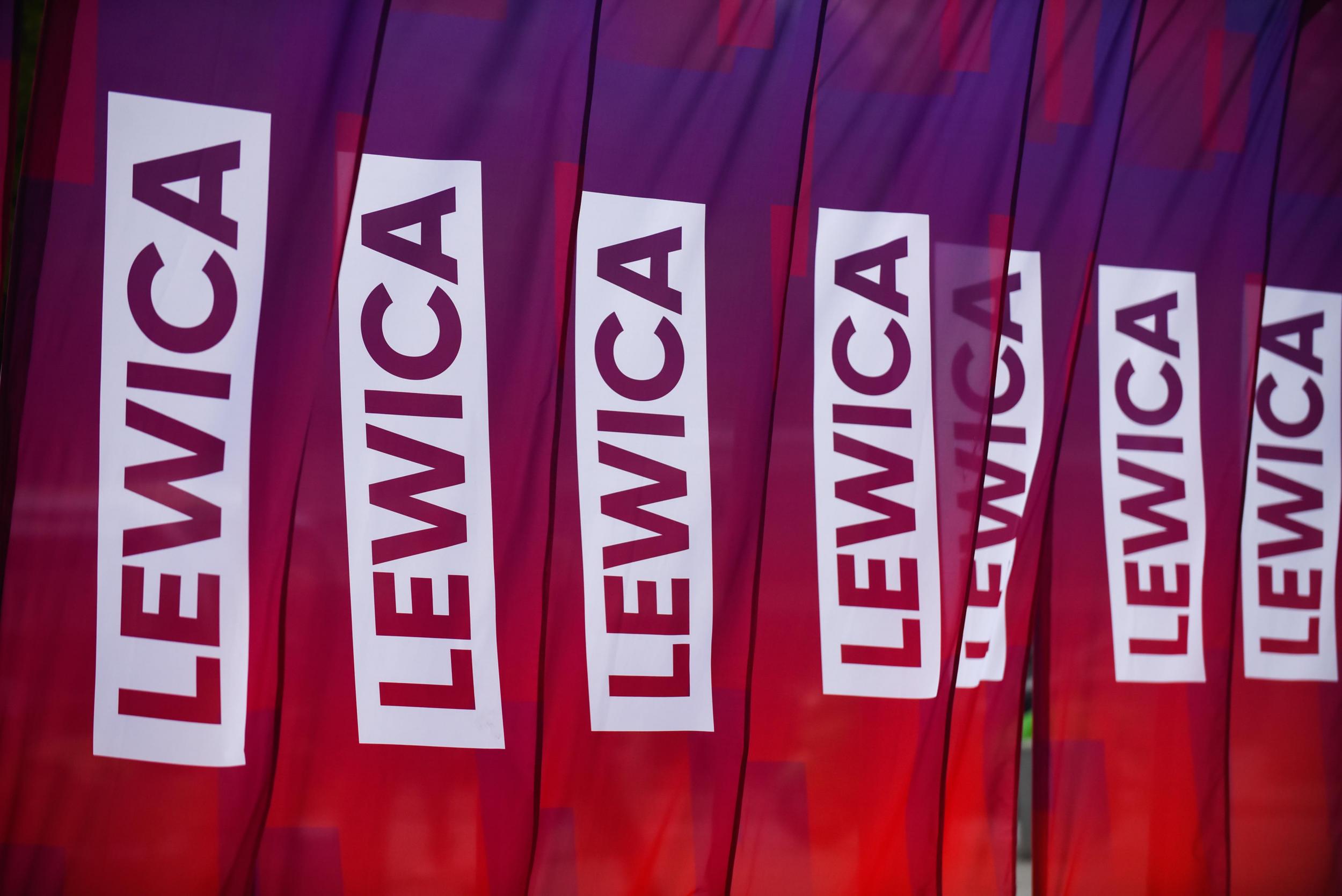Socialists set to make comeback in Polish elections next month
Right-wing populists could be ousted by coalition of opposition parties in next month's elections

Socialists are set to return to Poland‘s parliament for the first time in four years, in elections that could see ruling right-wing populist government dumped by voters.
Poles will head to the ballot box on 13 October, with a major question mark hanging over whether Law and Justice (PiS) will be able to stay in government.
There has been no left-of-centre party in the Sejm since the 2015 election, when the country’s main alliance of left-wing parties narrowly failed to win any seats because it did not hit the 8 per cent electoral threshold.
Ahead of this October’s contest, polls however show a new broad alliance of parties, called Lewica (“Left”) easily clearing the threshold and polling around 14 per cent – enough to make a return to politics.
Aleks Szczerbiak, professor of politics and contemporary European studies at the University of Sussex, told The Independent that the strong likelihood of the left-wingers winning seats this time was down to better cooperation between the groups.
“There’s been no increase in support for the left in Poland – it’s simply a question of the fact that the existing left-wing parties have united, rather than being divided. They’re getting more or less the vote that the left got at the previous election,” he said.
“Plus, because the campaign hasn’t polarised to become a referendum on the government, and because opinion polls are showing the left bloc polling well above the threshold, people don’t think it’s a wasted vote.”
Left-of-centre parties have not always been marginalised from Poland’s politics: as recently as 2001 the Democratic Left Alliance, the largest party in today’s Lewica coalition, dominated the Sejm and led the country’s government. But a series of corruption scandals and the appeal of right-wing populist parties gutted their vote and has left them marginalised.
Today the party relies largely on the “residual” votes people associated with the former communist regime – campaigning on issues like protecting the pensions of former officials – a significant voting bloc.
“The biggest problem the left has really got in Poland is that its coalition is squeezed: the less well-off, economically leftist Poles vote for right-wing parties like Law and Justice because they deliver leftist economic policies and social conservatism,” Professor Szczerbiak said.
“The social liberals, a lot of them vote for liberal parties because they don’t want economic intervention – they want lower taxes, lower public spending, that kind of thing.”
But the re-entry of the left into the parliament could change the maths in parliament and deprive PiS of its majority – despite its historically high popularity.
A survey conducted by pollster Social Changes puts PiS, the right-wing populists, on 46 per cent, while its main opposition party Civic Platform – centre-right liberals – are on 27 per cent. Lewica is on 14 per cent, while the agrarian Polish People’s Party and its allies are on 10 per cent.
If PiS cannot win a majority, the likelihood of opposition parties joining together to oust them is relatively high, Professor Szczerbiak said.
“The outcome of the election looks pretty clear-cut, in the sense that Law and Justice, the right-wing ruling party, will almost certainly get the largest share of the vote,” he said.
“But actually, that’s extremely misleading – because the key question is not whether Law and Justice is the largest party, but whether it can get an overall majority. And that’s much more open – in fact, on a knife-edge; too close to call.
“It could come down to a few hundred thousands votes either way, or one of the opposition parties crossing or not crossing the electoral threshold. If Law and Justice don’t get an overall majority it’s likely that you’d get a government formed of the current opposition parties – of which the left would be part of.”
The Lewica coalition includes the historically large Democratic Left Alliance, the pro-EU party Spring, and radical left party Razem. Its programme includes investment in renewable energy, increased health spending, a higher minimum wage, liberalising abortion laws, stronger workers’ rights for sick pay, and legalising same-sex marriage – though in a coalition with the other opposition parties the programme would likely be diluted.
Any coalition of the current opposition parties to oust PiS would likely be a broad one – likely led by the centre-right liberal Civic Platform with the support of other parties.
To increase the likelihood of winning MPs, the Lewica alliance has arranged to stand as a single party instead of a coalition – meaning it only has to hit a threshold of 5 per cent of the vote rather than 8 per cent.
Poland’s current government has been criticised by the EU for breaches of the rule of law, most notably over judicial reforms which critics said would politicise courts in favour of the ruling party.
Join our commenting forum
Join thought-provoking conversations, follow other Independent readers and see their replies
Comments
Bookmark popover
Removed from bookmarks